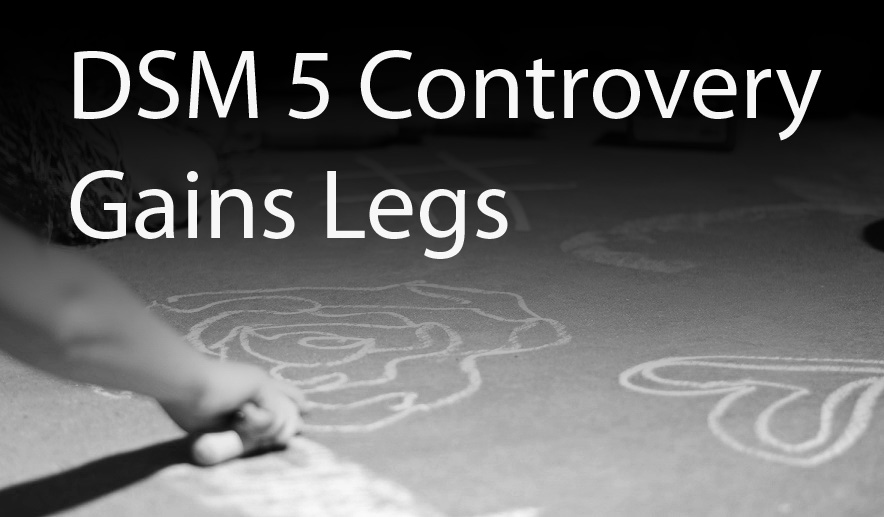DSM has long been the standard for mental health diagnosis. Those days may be coming to an end.
With the release of DSM-5, the American Psychiatric Association has expanded diagnostic criteria in such a way that many researchers say that the they will no longer use the DSM to diagnose.
The APA has long had a history of controversy. From their continued self-interjection into the political sphere, to adding and subtracting various diagnoses based on personal beliefs, the APA may have finally outgrown their usefulness. The latest DSM is tantamount to this fact.
The National Institute of Mental Health (NIMH) has already issued a statement that they will no longer rely on DSM for their research. NIMH director had this to say. "The weakness is its lack of validity. Unlike our definitions of ischemic heart disease, lymphoma, or AIDS, the DSM diagnoses are based on a consensus about clusters of clinical symptoms, not any objective laboratory measure. In the rest of medicine, this would be equivalent to creating diagnostic systems based on the nature of chest pain or the quality of fever."
What a bombshell.
A petition by various physicians around the world is up to over 15,000 signatures protesting the release of the new manual. Their protests range from the lowering of diagnostic standards, making disorder out of those who disorder may not be present, to the sheer lack of medical and physiological theory, a stepping stone in psychology that the APA has too long ignored.
Now there is a new effort brewing from the NIMH, the Research Domain Criteria or RDoC. The new effort promises to take all the shortcomings of the DSM into account, and could revolutionize the way we view mental disorder. It introduces scores of brain research, cognitive theory, and genetics into a manual that is based not on the whims of biased psychiatrists, but the science of real researchers who pursue truth of the mind.
This controversy is not likely to die down. And with a competing product nearing the horizon, it remains to be seen how the future of mental health diagnosis will shape up.
With the release of DSM-5, the American Psychiatric Association has expanded diagnostic criteria in such a way that many researchers say that the they will no longer use the DSM to diagnose.
The APA has long had a history of controversy. From their continued self-interjection into the political sphere, to adding and subtracting various diagnoses based on personal beliefs, the APA may have finally outgrown their usefulness. The latest DSM is tantamount to this fact.
The National Institute of Mental Health (NIMH) has already issued a statement that they will no longer rely on DSM for their research. NIMH director had this to say. "The weakness is its lack of validity. Unlike our definitions of ischemic heart disease, lymphoma, or AIDS, the DSM diagnoses are based on a consensus about clusters of clinical symptoms, not any objective laboratory measure. In the rest of medicine, this would be equivalent to creating diagnostic systems based on the nature of chest pain or the quality of fever."
What a bombshell.
A petition by various physicians around the world is up to over 15,000 signatures protesting the release of the new manual. Their protests range from the lowering of diagnostic standards, making disorder out of those who disorder may not be present, to the sheer lack of medical and physiological theory, a stepping stone in psychology that the APA has too long ignored.
Now there is a new effort brewing from the NIMH, the Research Domain Criteria or RDoC. The new effort promises to take all the shortcomings of the DSM into account, and could revolutionize the way we view mental disorder. It introduces scores of brain research, cognitive theory, and genetics into a manual that is based not on the whims of biased psychiatrists, but the science of real researchers who pursue truth of the mind.
This controversy is not likely to die down. And with a competing product nearing the horizon, it remains to be seen how the future of mental health diagnosis will shape up.
Chase Chick MPA LPC is CEO and co-founder of Beyond the Gray Sky, whose brands include Pursuit of Happiness, Dallas Psychology Review, and Luxe Media Productions.

 RSS Feed
RSS Feed
